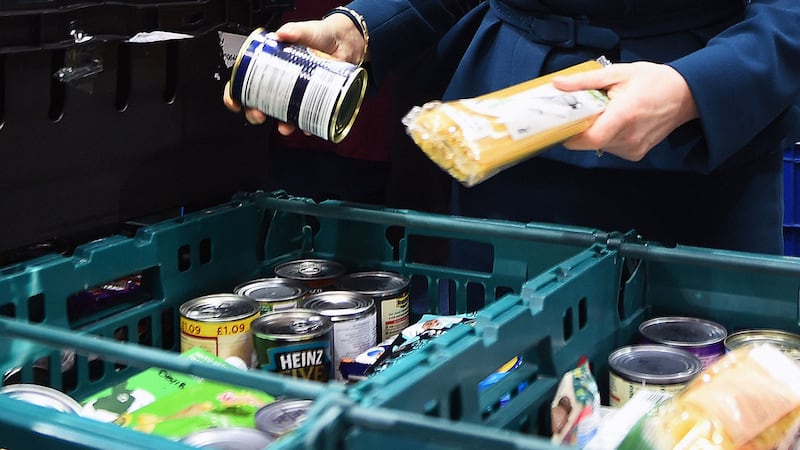The British are not as good at bribery as they used to be. To achieve the 1801 Act of Union, they bribed individual Irish MPs, using a secret slush fund.
Today, with that wonderful irony inherent in Irish history, they are trying a more open form of bribery. This time it is to entice MLAs collectively into undoing part of that same Act, by agreeing to the Irish Sea border.
The old Irish parliament had 300 MPs, but the Act of Union specified that there would be only 100 Irish MPs in Westminster. So, having suppressed the 1798 rebellion, Lord Castlereagh, Chief Secretary for Ireland (a role similar to that of Heaton-Harris today), bribed the Irish parliament to vote itself out of existence, with the loss of 200 MPs.
Now MLAs are being bribed to vote Stormont back into existence, not with a secret slush fund, but by using what is effectively our money for increased public spending (but for one year only). Castlereagh would have been disappointed with that quality of bribery.
So Heaton-Harris has added a hint of political blackmail. He obviously recognises the validity of public sector workers’ pay demands, but he says they will receive their pay rise only if MLAs return to Stormont.

Welcome to another edition of Britain’s long-running TV game show in Ireland, “Cash buys compliance”.
Of course, the real point about this week’s Hillsborough talks is that they began 25 years too late. The time to put the north on a stable economic foundation was during the Good Friday Agreement (GFA), but money was considered too vulgar a topic amid the flag waving and cheers.
Back then the parties had the opportunity to create a new society. They had the support of the world, but they opted for political self-interest rather than public benefit. Now the world has passed them by. Like the tale of the King’s new clothes, they are effectively politically naked, covering themselves with the cloak of sectarianism.
While we were killing each other during the Troubles, Britain moved from a welfare state to Thatcherism. By ignoring that change, our five main parties agreed to implement Thatcher’s ideas.
- DUP Stormont boycott and £2.5 billion offer: Is this choreography or yet another merry dance?Opens in new window
- Patricia Mac Bride: Time for Sir Jeffrey Donaldson to decide if he’s a Nutcracker or Mouse KingOpens in new window
- John Manley - Shifting sands leave the DUP with a stark choiceOpens in new window
With an electoral mandate for Thatcherism in the GFA vote and a shared level of administrative incompetence, the parties decimated public services. They got away with it by the political equivalent of re-arranging the deckchairs on the Titanic.
For example, in Westminster elections, the SDLP replaced Sinn Féin in Foyle: cheers, as we hit the iceberg. SF ousted the DUP in North Belfast: ecstasy as the water lapped around our ankles. The DUP unseated Alliance in East Belfast: oh dear, we have no lifeboats for the 700,000 on the NHS waiting lists.
These election results diverted from the fact that when it comes to creating the health crisis, for example, we do not have five different parties. We have one big, centre-right party: the Stormont Party.

(Vote for us. We are the party that brought you food banks, waiting lists, poverty and potholes. The Stormont Party: making life miserable for everyone.)
The SF wing of the party blames the DUP wing for the current under-payment of nurses. However, the SF wing granted nurses only a one per cent pay rise in 2016, because it said it was adhering to London’s pay restraint policy.
When it comes to creating the health crisis, we do not have five different parties. We have one big, centre-right party: the Stormont Party
That wing then collapsed Stormont and when out of office, it supported the nurses’ demands and blamed Britain for pay restraint – even though it voted for union with Britain in the GFA. (As well as irony, Irish history is also heavily laced with short-term memory syndrome.)
Within 50 years of Castlereagh’s union with Britain, over two million people had either died or emigrated during the Great Hunger. We cannot predict the same dire consequences from the current political talks, but the real test of their success will include issues such as reduced health waiting lists and the need for food banks.
Anything less will just be another re-shuffling of the deckchairs.




